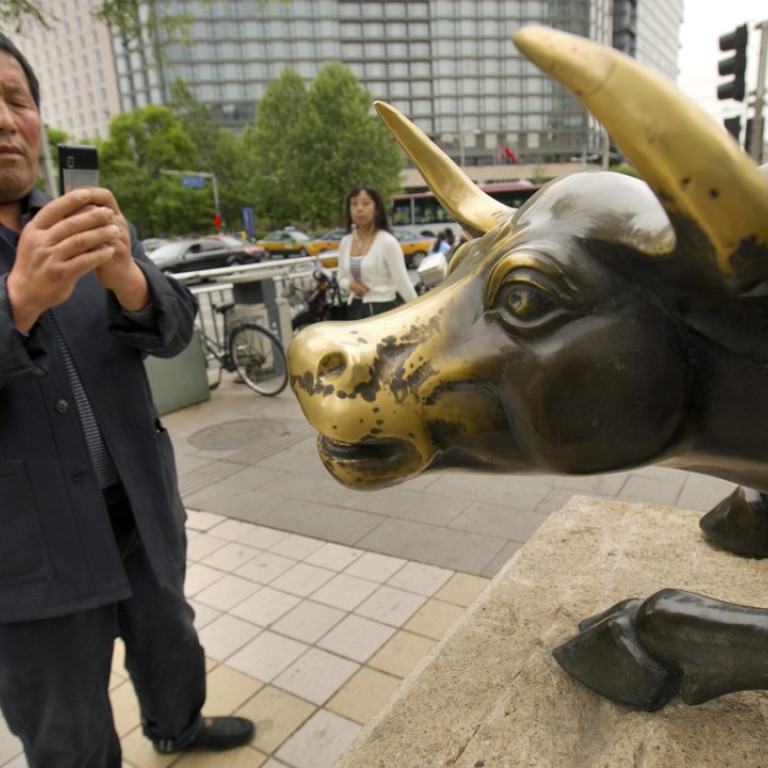
China’s worst-performing stocks in 2017 are this year’s biggest gainers
The ChiNext index of start-ups has gained 6.4 per cent so far this year, against the 11 per cent drop in 2017
China’s worst-performing stocks last year have become the best performers in 2018.
The ChiNext index of start-ups rose 1.2 per cent at the close on Tuesday, adding to a 6.4 per cent annual advance as the biggest gainer among China’s major stock benchmarks so far this year. That marks a sharp turnaround from the 11 per cent decline on the gauge as the bottom-ranked index for 2017.
While an almost three-year decline on China’s growth stocks since a 2015 crash has reduced small-caps to their cheapest valuation against larger companies this year, jitters about rising US interest rates have also provided impetus. Traders are shifting out of big-caps on concern that tightening liquidity will restrain expansion of the already elevated valuation.
“Small-caps’ relative valuations against the big ones have become much cheaper and blue-chip big companies’ valuations are at a high-flying level now,” said Dai Ming, a fund manager at Hengsheng Asset Management in Shanghai.
“Unless China’s economic growth exceeds expectations significantly this year, it’s unlikely that valuation of these big companies will expand further. Investors will seek bargains in small-caps this year, so the rally in ChiNext companies will be sustainable for a while.”
Gains on the bigger companies have slowed after a 22 per cent rise on the CSI 300 Index in 2017 drove the valuation to the highest level in two years. One big-cap Hangzhou Robam Appliances has also alarmed investors sticking to blue-chip companies by reporting earnings that trailed estimates. The big-cap gauge has climbed 1.2 per cent in 2018 so far.
Leading gainers on the ChiNext gauge this year have been dominated by the companies posting fast earnings growth. Winning Health Technology Group has jumped 54 per cent this year for the biggest gain on the small-cap measure, as the medial software maker forecast as much as 60 per cent increase in first-quarter profit.
Investors will seek bargains in small-caps this year, so the rally in ChiNext companies will be sustainable for a while
Beijing Orient National Communication Science & Technology and Hand Enterprise Solutions have both advanced 38 per cent after full-year earnings for the two companies increased at least 32 per cent in 2017.
Still, brokerages including UBS Group AG and Huachuang Securities warned against being too upbeat about smaller companies as regulators’ move to entice overseas-traded Chinese technology companies to return to home listings will drain funds from mainland-listed peers.
An estimated 373 billion yuan (US$59 billion) will be siphoned off from the secondary market, if China’s top four technology companies including Alibaba Group Holding and Baidu offer 5 per cent of their existing shares in the form of Chinese Depositary Receipts, according to Gao Ting, head of China strategy at UBS.
“The median valuation of A-share technology companies is much higher than the Chinese companies listed overseas and the quality is lagging behind,” said Wang Jun and Li Ershi, analysts at Huachuang Securities.
“Most small companies are facing the pressure of deflating bubbles.”
Alibaba owns the South China Morning Post.

